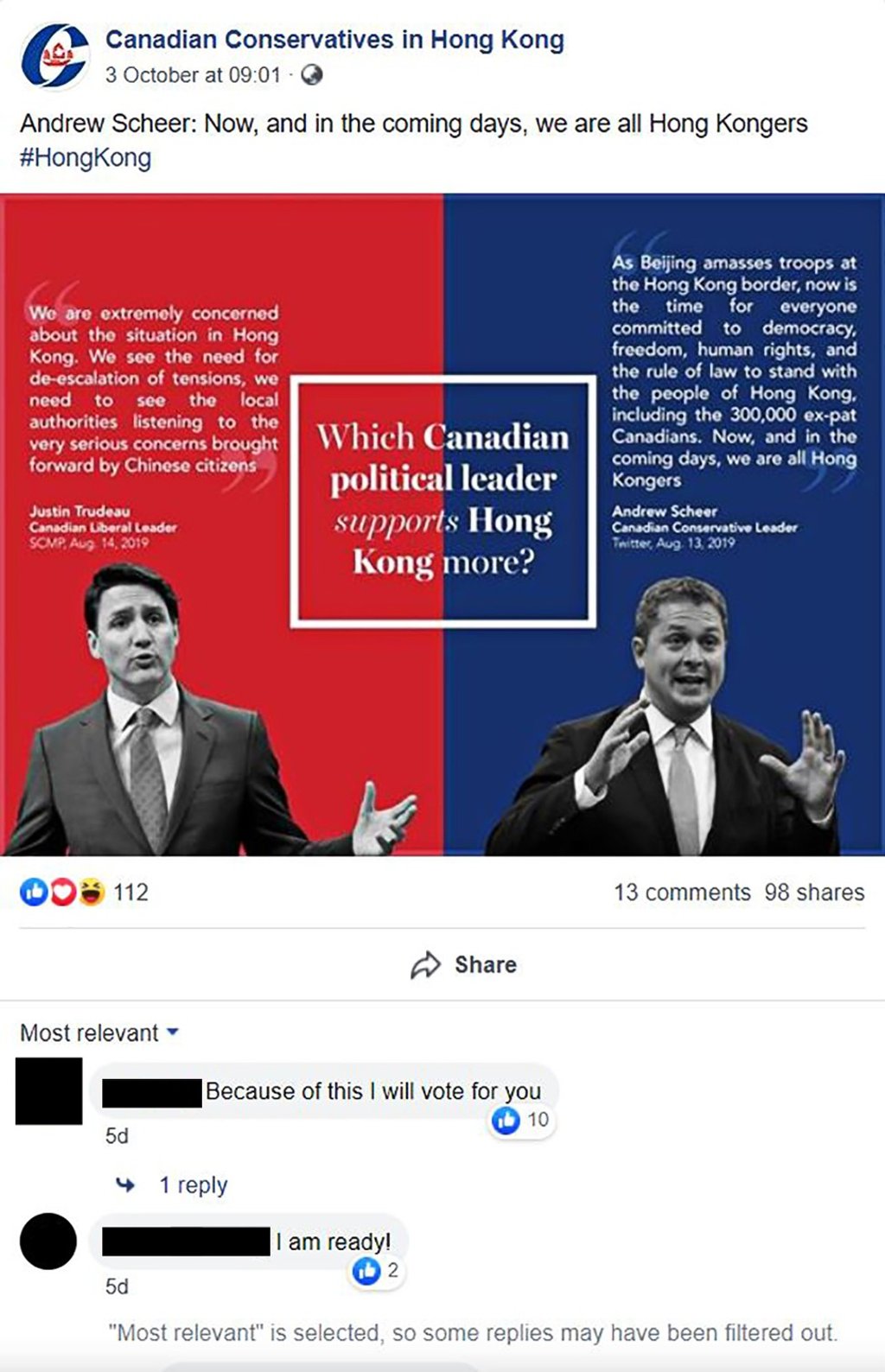Could Hong Kong protests sway the Canadian election?
- With the main parties neck and neck, the Conservative leader raises the issue in an appeal to both expats and the Chinese diaspora
- It is a high-stakes gamble that risks alienating as many voters as it attracts

There’s a stereotype in Canadian politics that sees the Chinese community as apolitical and unlikely to vote. Clearly, it does not take account of people like Gloria Fung.
Fung, who arrived in Toronto nearly three decades ago, is the very antithesis of the image of a vote-shy Chinese immigrant. As the founder of a non-profit pressure group, the real estate broker spends much of her free time lobbying and petitioning politicians ahead of Canada’s looming federal election.
Still, if Fung doesn’t fit the stereotype of a Chinese-Canadian voter, neither does the issue she is campaigning about. It is not taxation and it is not fiscal policy. It is not even immigration. Fung is motivated by something more than 10,000km from Canada’s borders: anti-government protests in her native Hong Kong.
As the founder of Canada-Hong Kong Link (CHKL), Fung is petitioning the six main parties contesting the election on October 21 to commit to five demands, ranging from controlling the export of military and crowd-control technology to Hong Kong to urging Beijing to refrain from calling in the People’s Liberation Army to quell anti-government protests, sparked by a now withdrawn extradition bill, that have entered their fifth month.

In past elections, such non-domestic issues might have been marginalised on the campaign trail but, amid one of the most tightly contested races of recent years, there are signs that Canadian politicians are beginning to wonder if voters like Fung might be just what swings the vote – and they have their eyes on a voter bank far larger than the 1,800 signatures on Fung’s petition.
The Supreme Court in January ruled that, for the first time in 25 years, Canadians living abroad would be able to vote in the federal election. That decision has paved the way for an estimated 300,000 Canadians living in Hong Kong – one of Canada’s largest diasporas outside the United States – to have their say in who becomes the country’s next prime minister.
